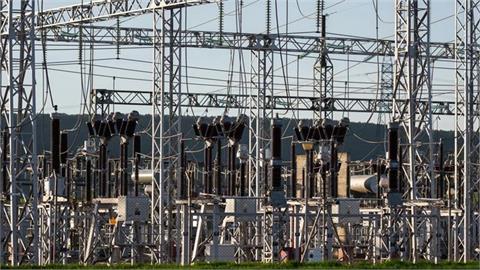Last month the White House submitted President Obama’s annual economic report to Congress. Nestled in the findings is a compelling case for lifting the country’s antiquated ban on natural gas exports.
"An increase in U.S. exports of natural gas, and the resulting price changes, would have a number of mostly beneficial effects,” the report states, for domestic employment, geopolitical security, our energy industry and the environment. The report ticks off numerous benefits — "create jobs in the short run,” "lower natural gas prices around the world,” "promote the use of cleaner energy abroad” — that make clear the question is not whether the United States should reconsider restrictions on natural gas exports, but when will policymakers step up to economic reality.
The value of lifting export restrictions on domestically produced liquefied natural gas (LNG) is becoming glaringly apparent. The Obama administration’s latest report not only adds to the body of evidence indicating now is the time to act, it reaffirms that doing so aligns with the president’s priority of promoting clean, sustainable energy here at home and abroad.
Yet some lawmakers in Washington remain on the fence, or worse, are actually trying to walk back efforts to streamline the export process. Late last month, Democratic Sens. Barbara Boxer of California, Al Franken of Minnesota, Ed Markey of Massachusetts and independent Sen. Bernie Sanders of Vermont introduced legislation to bog down the Department of Energy’s review process of LNG export applications. Their bill comes in the face of mounting agreement among experts and policymakers that as a country, we should be expediting the process, not slowing it down.
There is a global appetite for the natural gas resources the United States is fortunate to have in spades. In Europe and Asia natural gas prices exceed three and four times those here the States, respectively. American producers, and even more the economy at large, stand to reap sizable gains by easing export restrictions to meet international demand.
The presidential economic report confirms expanding U.S. exports of natural gas "builds liquidity in the global natural gas markets” and reduces reliance on traditional powerhouses like Russia and Iran. And doing so will create even more opportunity for American workers and industry. Increased exports will create as many as 65,000 jobs for every 6 billion cubic feet of natural gas and stimulate an increase in gross domestic product between 0.05 and 0.17 percent, by the Obama administration’s estimates.
Conversely, pursuing the narrow, nationalistic policies will continue to dam up a glut of supply here at home, which will depress development, thereby stifling the energy renaissance of the last decade. Since Adam Smith’s "The Wealth of Nations,” it has been clear that exports contribute to the betterment of the exporting nation.
The United States has an incentive not to wait. Our window of opportunity is closing. Worldwide demand is growing as nations move from coal to gas and seek secure supplies. While the American policymakers procrastinate, other countries are stepping up to meet these needs. Countries such as Lithuania and Poland are actively bringing on line capabilities to help meet regional demand.
The Wall Street Journal reported last month that as other countries fill supply needs incentives here at home are drying up. "This burgeoning industry is running out of customers and investors to fund new multibillion-dollar projects,” the article notes. Without private support the growth achieved over the past several years will slow, and businesses and consumers can expect to see prices increase.
Independent of the environmental justification, the president and other world leaders are focusing on reducing greenhouse gas emissions. By leveraging our natural gas resources on the international stage, the president advances that goal, and simultaneously stimulates our economy. LNG exports will alleviate other countries’ reliance on more carbon-intensive fuels, while creating a "direct benefit for the United States.” And at the same time, they will not compromise U.S. manufacturers’ and businesses’ competitive cost advantage. Counterintuitive as it may seem, restricting exports will disadvantage U.S. manufacturing.
The United States is in the midst of an energy renaissance that has created an abundance of supply here at home. It won’t last very long, though, if lawmakers don’t rethink current export restrictions. This is an opportunity our country can’t afford to let others lead.
by William O’Keefe, chief executive officer of the George C. Marshall Institute.



